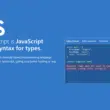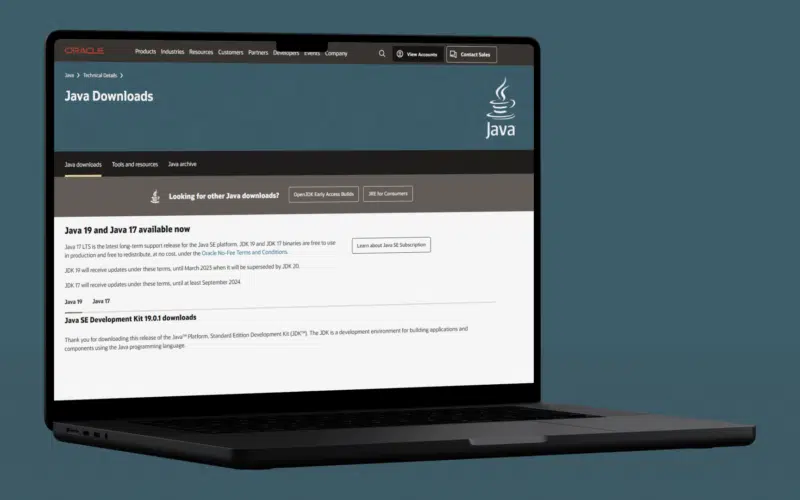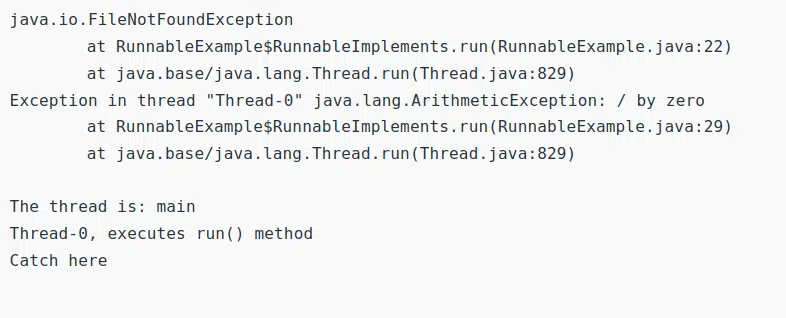Are you tired of dealing with java.lang.exception: no runnable methods error and looking for a solution? 💡 Then congratulations, you’ve visited the right place.
The java.lang.exception no runnable methods error is an exception in Java by JUnit that occurs when JUnit doesn’t find runnable test methods. Java framework spring boot throws no runnable methods exception where no runnable test methods are composed in the JUnit test classes.
In this article, we will discuss what JUnit Framework is and why the exception java.lang.exception no runnable methods and how to fix it. So let’s get started 👇
Table of Contents
What is JUnit Framework?
JUnit is an open-source Java framework used for unit testing. Java developers used JUnit for writing and executing automated test cases. In Java or any other programming language, we write test cases to make sure everything is working from the initial stage to the current stage.
Some test cases must be re-executed every time the new code is implemented. In such cases, JUnit ensures the code is fine or broken. JUnit has multiple graphs that are used for representing the test cases’ progress. If a test case fails, it turns red, and if it runs smoothly, it turns green. Further, it helps the developers in enabling bug-free and reliable code.
It plays an important role in testing Java classes. In the old versions, JUnit methods for tests were determined by the signature method, but now in the latest versions, it looks for the method that starts with the test keyword or Test annotation. For performing unit testing, it executes all the methods that start with a test in the test class.
What is Java.Lang.Exception?
It is an interface that is implemented by those classes whose instances are executed using thread. There are always multiple ways to start a new thread i.e. implement runnable and subclass threads. If a task can be done using overriding Runnable method run(), then there is no need for subclassing.
How to Create a Thread Using Java.Lang.Runnable?
Let’s look into it using the code example:
Code
//import java file not found exception
import java.io.FileNotFoundException;
public class RunnableExample {
//main method
public static void main(String[] args)
{
System.out.println("The thread is: " +
Thread.currentThread().getName());
Thread t = new Thread(new RunnableExample().new RunnableImplements());
t.start();
}
//creating and starting a new thread
private class RunnableImplements implements Runnable {
//using runnable run() method
public void run()
{
System.out.println(Thread.currentThread().getName()
+ ", executes run() method");
//Checked exception can't be thrown, Runnable must
handle the checked exception itself.
try {
throw new FileNotFoundException();
}
catch (FileNotFoundException e) {
System.out.println("Catch here");
e.printStackTrace();
}
int s = 2 / 0;
//See RuntimeException() in the below commented lines
// throw new NullPointerException();
}
}
}
Output
In the above code example, the result displays that Runnable cannot throw exceptions that are checked. File not found exceptions should be handled by checked exceptions in the run() method, but JVM automatically handles Runtime exceptions.
Code
public class RunnableExample {
//main method
public static void main(String[] args)
{
System.out.println("The thread is: "
+ Thread.currentThread().getName());
Thread t = new Thread(new RunnableExample().new RunnableImplements());
t.start();
}
//creating and starting a new thread
private class RunnableImplements implements Runnable {
//using runnable run() method
public void run()
{
System.out.println(Thread.currentThread().getName()
+ ", executes run() method");
}
}
}
Output
The thread is: main Thread-0, executes run() method
The results display two active threads in the above code example. The first one is the main thread, and the other one is Thread-0. As you can see, the main thread is created by the main method, and the other thread is invoked using RunnableImplements
How to Fix “Java.Lang.Exception: No Runnable Methods” Using Test Keyword or Annotations?
As discussed earlier, if you are facing Java.Lang.Exception: No Runnable Methods Error. You can also fix it using Test annotations. Below are a few examples for your test cases while using test annotations.
Code
@Test
public void testGetMax(){
System.out.println("test case for finding max");
assertEquals(5,NoRunableMethodExceptionExample.getMax(new int[]{1,3,4,2,5}));
assertEquals(0, NoRunableMethodExceptionExample.getMax(new int[]{-12,-3,-4,-2}));
}
@Test
public void testGetCube(){
System.out.println("test case for cube values");
assertEquals(27,NoRunableMethodExceptionExample.getCube(3));
}
@Test
public void testReverseWord(){
System.out.println("test case for reversing words of a sentence");
assertEquals("woh era uoy",NoRunableMethodExceptionExample.reverseWord("how are you"));
}
Conclusion
To summarise the article, we have discussed java lang exceptions with no runnable methods issue. Further, we have discussed the JUnit framework and java lang exceptions. Later in this article, we provided code examples and explained them as well.
Hope this guide helps you in dealing with java lang exceptions with no runnable methods issue. 😇 Share with your friends and mates 🧑🤝🧑 and in case of any confusion, let us know in the comment section below. 👇













